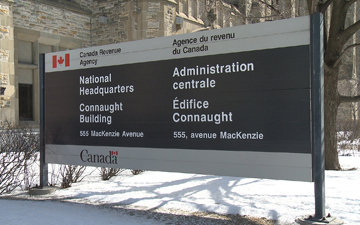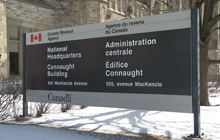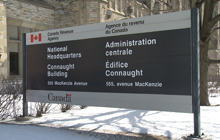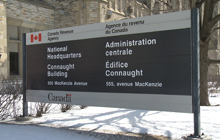Crackdown: CRA Voluntary Disclosures Program, conclusion

The conclusion of our five-part series on the CRA's proposed changes to the Voluntary Disclosures Program focuses on proceeds from crime
OTTAWA – The Canada Revenue Agency has proposed changes to its Voluntary Disclosures Program (VDP) that would narrow eligibility and impose additional conditions on taxpayers applying to use it. Throughout our five-part series, parties on all sides have wondered whether the CRA will strike the right balance in adjusting a successful program that, for example, recovered a total of $1.7 billion from 19,500 proactive disclosures in the program's 2015-2016 fiscal year.
One of the key changes to the program is the amount of interest relief that is calculated.
The CRA's draft circular states that under certain circumstances “the Minister may grant partial relief in the application of interest against a taxpayer in respect of assessments for years preceding the three most recent years of returns required to be filed…Generally, this interest relief will be 50 per cent of the applicable interest for those periods. Full interest charges will be assessed for the three most recent years of returns required to be filed.”
“I think they’re codifying it to say ‘everybody’s going to be on the same page,’ says Hugh Neilson, FCPA, FCA. Neilson is the director of taxation services for KRP Group, an accounting firm in Edmonton, and a member of the Video Tax News Board of Editors.
“The current VDP rules mention that [CRA] will consider partial interest relief related to periods preceding the most recent three years. So it seems like they’ve decided to codify that to ‘we’re not going to waive more than half the interest,’” he elaborates.
CRA is also proposing to cancel VDP relief if it is subsequently discovered that a taxpayer’s application was incomplete due to a deliberate misrepresentation.
Under the current program, if a subsequent audit identifies additional taxes owed, the resulting assessment would be subject to applicable interest and penalties, including gross negligence penalties where appropriate. The relief provided on the basis of the original disclosure is not reversed under the existing guidelines, says Walters.
“The proposed policy changes would result in a reversal of all relief provided by the VDP and the potential for interest and penalties on both the taxes disclosed through the VDP, as well as those identified by the subsequent verification or audit,” he explains.
Furthermore, the draft information circular makes it clearer that if, upon subsequent determination it is discovered that the conditions under which the CRA accepted a disclosure when a taxpayer applied for acceptance into the VDP were not met, that is grounds for cancelling the relief, says CRA media spokesperson David Walters.
Gabe Hayos, vice-president of taxation for the Chartered Professional Accountants of Canada in Toronto, says the feedback during the 60-day consultation period will determine the effectiveness of these CRA proposals with respect to the VDP.
“The Canadian Bar Association — CPA Canada Joint Committee [on Taxation] is having a look at these — getting the view of the broader tax community as to what comments they may have. I’ve also consulted with members of my Small and Medium Tax Practitioner Committee to get some input,” he says.
Canada’s tax system is very complex, and even the largest companies, with tax experts on staff, can make errors and not get everything right the first time, Hayos notes.
Therefore it is important for the CRA to strike the right balance with its VDP rules, since the program was established to try to encourage the individual taxpayer or business who wants to be tax compliant to come forward and disclose errors, he elaborates.
“The CRA will carefully consider all of the input received through the external consultation,” says Walters. “These consultations will inform the government’s next steps, and it is expected that the Minister of National Revenue will announce formal changes to the program in Fall 2017,” he adds.









(0) Comments